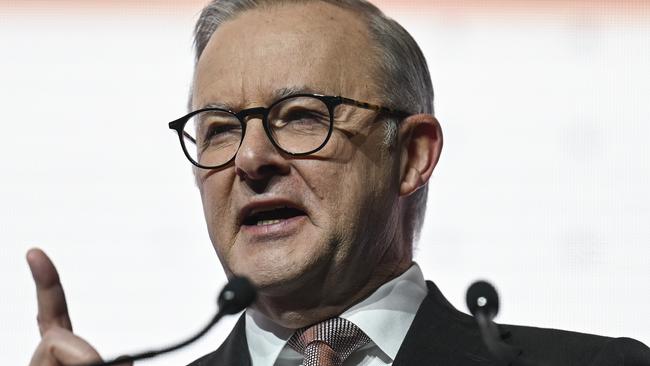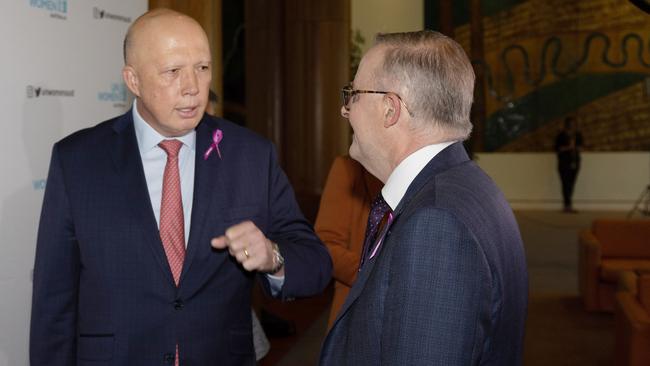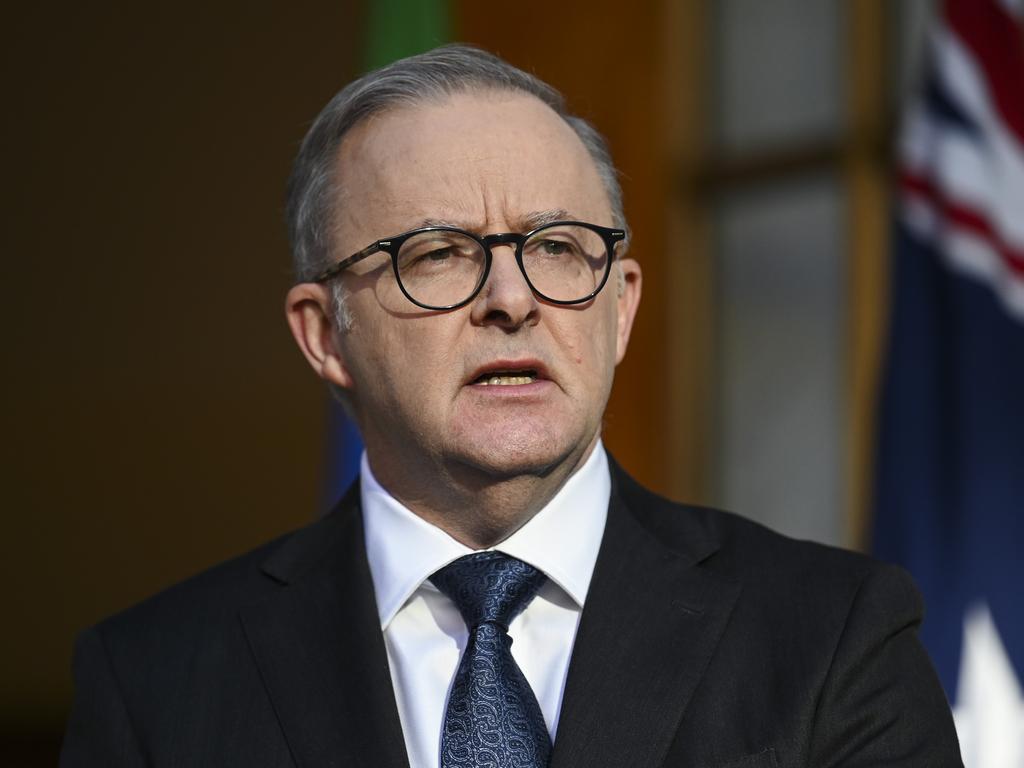There are now clear warning signs for Albanese as Labor’s dominance is challenged
The electorate is now in a state of transition. Brand damage for Labor in Victoria, traditionally its strongest state, is now on display.

Three significant shifts in the domestic political landscape have taken place largely unnoticed over the past six months.
It is now clear that Anthony Albanese now has a problem with men. He has a problem in Western Australia and Victoria. And he has a problem with the Greens.
There are clear and unmistakeable warning signs for the government and the Prime Minister as politics enters the post-referendum phase with the dynamics having profoundly changed. The electorate is now in a state of transition.
Brand damage for Labor in Victoria, traditionally its strongest state, is now on display. The Dan Andrews effect aided Albanese at the election. It is now in reverse.
Federally, Labor has suffered a six-point decline in primary vote support in Victoria. At just 36 per cent, it is now only a point ahead of the Coalition.
On a two-party preferred basis, it is now behind its election result.
This is a significant movement and should be of concern for Albanese.

It may not be enough to change the numerical outcome of seats held against the Coalition, apart from suggesting in theory that the Liberals could potentially win back Aston, it is in Victoria where the Greens pose a significant threat.
In Western Australia, the anticipated political correction is also now under way. Labor has suffered a similar decline in primary vote support and is now behind its election result on two-party preferred with approval of Peter Dutton on the rise.
This shouldn’t be a surprise. The election result, aided by a popular State Labor leader in Mark McGowan was an aberration for Labor. It was a question of when – not if – a reversal of fortunes for federal Labor would occur.
But for Dutton, this is a critical development. The Coalition has no prospect of winning government without a strong recovery in WA.
This is offset by margin of error gains for Labor in NSW, which should be of equal concern to Dutton as WA and Victoria are for Labor.
Not that alarm bells should be ringing for Labor just yet. It maintains a commanding two-party preferred lead of 54-46 per cent. This is well above its election result.
Nevertheless, the momentum is clearly heading away from Labor for the first time since the election.

While everyone talks about the problem the Coalition has with women, it can now be said that Labor equally has an issue with men and women.
For the first time since the election, male voters are more inclined to vote Coalition than Labor.
While no conclusions on voting intentions can be drawn from the voice referendum, the gender split now appears to have correlated.
And while Labor has a clear majority of support among female voters over the Coalition more generally, something more fundamental appears to be emerging.
Support for the Greens among women has risen three points to 15 per cent. At the same time, support for Labor among 18 to 34-year-olds has dropped dramatically over the same period – from 43 per cent to 37 per cent.
The Greens are at 25 per cent. One conclusion to be drawn from this is that the Greens are successfully drawing young professional inner-city women away from Labor.
At the same time, the Coalition is starting to claw back support among men in the suburbs.
The inference is obvious: as Labor struggles to address the growing community divisions over competing priorities, it is being squeezed from both the right and the left.






To join the conversation, please log in. Don't have an account? Register
Join the conversation, you are commenting as Logout